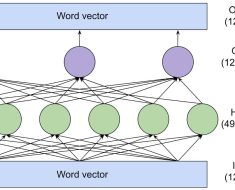A commission of the French National Assembly proposes changes to the EU Copyright Directive to accommodate generative AI.
On January 18, a committee of the French National Assembly published an opinion recommending amendments to the EU Copyright Directive to take account of generative AI and regular reviews of EU AI law. The High Commission for Digital and Posts (CNSP) was responsible for the opinion, which is the first AI-related opinion in almost four years.
The EU Copyright Directive came into force in April 2019, three years before OpenAI published ChatGPT. Since then, the issue of training data and copyright has led to numerous debates and lawsuits, most recently the New York Times’ lawsuit against OpenAI.
“How to identify original works by artists? How to attribute works generated by AI intermediaries? How to remunerate authors whose works have been used? How to manage opt-outs for artists who refuse their content to be used by AI? These are the questions that require a review of the copyright directive in light of generative AI,” Mireille Clapot, the MEP leading the opinion and president of the CNSP, told Euractiv.
Ad
Ad
France should use its diplomatic power to develop an international AI treaty
The French Commission considers some existing safeguards to be effective, including transparency clauses and compliance with the EU Copyright Directive. However, it believes that the Copyright Directive should be revised in the next legislative period to take into account the legal implications of generative AI on intellectual and industrial property.
The opinion also suggests that the Ministry of Culture should join the French national AI coordination group to include copyright aspects in the national AI strategy.
At the global level, they recommend using France’s diplomatic weight to develop an international AI treaty along the lines of the United Nations Convention on the Law of the Sea. They also recommend introducing clawback clauses for publicly funded AI startups and facilitating early-stage funding for AI startups to boost investor confidence.





